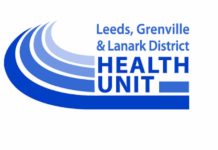It feels like summer! As we get into the warmer weather this summer, it is important to be prepared for high heat. Don’t forget to check your local weather forecasts so you can plan your activities and adjust them to protect yourself and your family from the health effects of heat.
Anyone can be affected by high temperatures and become overheated which can lead to dehydration, heat exhaustion, heat stroke and in some cases death. Some people are at higher risk, especially the very young, older adults, those with chronic illness, those on special medications and those who are physically active or work outdoors. When temperatures are high, it is important to stay hydrated and to take the following precautions to stay cool:
- Never leave people or pets alone in a parked vehicle.
- Drink plenty of water throughout the day, even if you don’t feel very thirsty. Remember to take sips often and not to guzzle your drink. Learn more about hydration at unlockfood.ca.
- Pack extra water for daily activities including while your family is at school or work.
- Wear loose-fitting, light-coloured clothing made of breathable fabric.
- Take cool showers or baths until you feel refreshed.
- Block the sun by closing awnings, curtains or blinds during the day.
- If you have an air conditioner with a thermostat, keep it set to the highest setting that is comfortable (somewhere between 22ºC/72ºF and 26ºC/79ºF). This will reduce your energy costs and provide you with needed relief. If you are using a window air conditioner, cool only one room where you can go for heat relief.
- Plan strenuous outdoor activities for cooler days, earlier in the day or choose a cooler location, like a place with air conditioning or with tree shade.
- Spend a few hours in a cool place. It could be a tree-shaded area, swimming facility or an air-conditioned spot.
Know the signs of Heat illness:
Even short periods of exposure to high temperatures can cause health problems. If you experience the following symptoms after exposure to extreme heat, seek medical attention immediately:
- Nausea, dizziness, blurred vision
- Difficulty or rapid breathing
- Severe headache or confusion
- Convulsion
- Fever
- Extreme thirst, decreased urination that is unusually dark
- Changes in behaviour in children (sleepiness or temper tantrums)
If you think you are suffering from heat stroke or if you are caring for someone who has a high body temperature and is either unconscious, confused or has stopped sweating, call 911 and immediately move to a cool place and drink liquids – water is best. Heat stroke is a medical emergency: https://www.canada.ca/en/health-canada/services/publications/healthy-living/fact-sheet-staying-healthy-heat.html
Check in on friends and family members to make sure that they are prepared for heat events and during the heat, see how they are doing, if they are staying cool and hydrated not only during the day but during the night too. Hot summer nights can make sleeping and breathing difficult for some.
For more information on how to protect your health during extreme heat, visit Extreme heat events: How to protect yourself from the health effects of extreme heat – Canada.ca or call 1-800-660-5853 or 613-345-5685. You can also connect with us on Facebook and Twitter @LGLHealthUnit for important public health updates.







